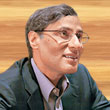anti-vaxxers
2021/03/30 04:13:19 網誌分類: 生活
Many people around the world, including Hong Kong, have become anti-vaxxers. They have no problem with flu shots but are worried about the safety of the new coronavirus vaccines. That’s why the word “anti-vaxxers” has made a comeback. The expression “fair share” means to have a lot or an equal amount of something, especially something bad. You can say you have had your fair share of bad luck. This means you have had as much bad luck as other people with bad luck. Even though the coronavirus has made more people become anti-vaxxers, there is a long history of people opposed to vaccines.
The first documented vaccine was invented by Edward Jenner, an English doctor and scientist, who invented the word “vaccination” and the smallpox vaccine in 1796. Jenner saw a connection between cowpox, a viral disease in cows, and smallpox. He modified the cowpox virus to vaccinate a young boy. It eventually became the smallpox vaccine. Many people in the West did not believe in the vaccine’s safety and became anti-vaxxers. But others believed in it after seeing its effectiveness. Vaccines have prevented many diseases but some people still distrust vaccines. I am not an anti-vaxxer. I registered for the BioNTech vaccine just before the government suspended BioNTech vaccinations because supplies to Hong Kong had faulty packaging.
******
不是許多香港人熟悉“anti-vaxxer”這個字。它並非一個新字,但因為現在有對抗新冠肺炎的疫苗,令這個字又重新流行(comeback)起來。以往anti-vaxxers主要來自西方國家,如美國和英國,但香港現在也有為數不少的(fair share of)anti-vaxxers。“Vaxxer”來自疫苗“vaccine”一字,“anti”即反對,因此anti-vaxxer即指反對接種疫苗的人士。它原本的寫法是“anti-vaccination”,逐漸演變成“anti-vax”,而反對疫苗的人就被稱為anti-vaxxers。Comeback一字有幾個意思,但在這裏的意思就是某事物,例如之前的一個時裝潮流,又再度流行。
世界各地有許多人,包括香港的,都成為了反疫苗者(anti-vaxxers)。他們對流感針沒有多大意見,但就擔憂新冠肺炎的疫苗的安全。因此“anti-vaxxers”這個字又再度流行(comeback)起來。習語“fair share”即在某物,尤其壞事情上,已擁有大量或足夠「公平」的份額了。你可以說you have had your fair share of bad luck,意思是你的霉運已夠多了,足以比得上那些倒楣的人所遭遇的。縱然新冠肺炎令更多人成為反疫苗者(anti-vaxxers),但其實人們反對疫苗的歷史由來已久。
第一支有文獻紀錄的疫苗是由英國醫生及科學家愛德華.詹納所研發,他於一七九六年發明了“vaccination”一字及天花疫苗。詹納見到在牛群傳播的病毒疾病牛痘,以及天花之間的關係。他改良了牛痘病毒以接種在一名男孩身上。它最終發展成天花疫苗。西方許多人都不相信疫苗的安全,成為反疫苗者(anti-vaxxers);但另一些人見過疫苗的功效後都相信了。疫苗已經預防了許多疾病,但有些人仍不信任疫苗。我並非反疫苗者(anti-vaxxer),我剛預約復必泰疫苗後不久,政府就因其供港批次的包裝有瑕疵,而暫停復必泰的接種。中譯:七刻
mickchug@gmail.com
Michael Chugani 褚簡寧
回應 (0)
我要發表

